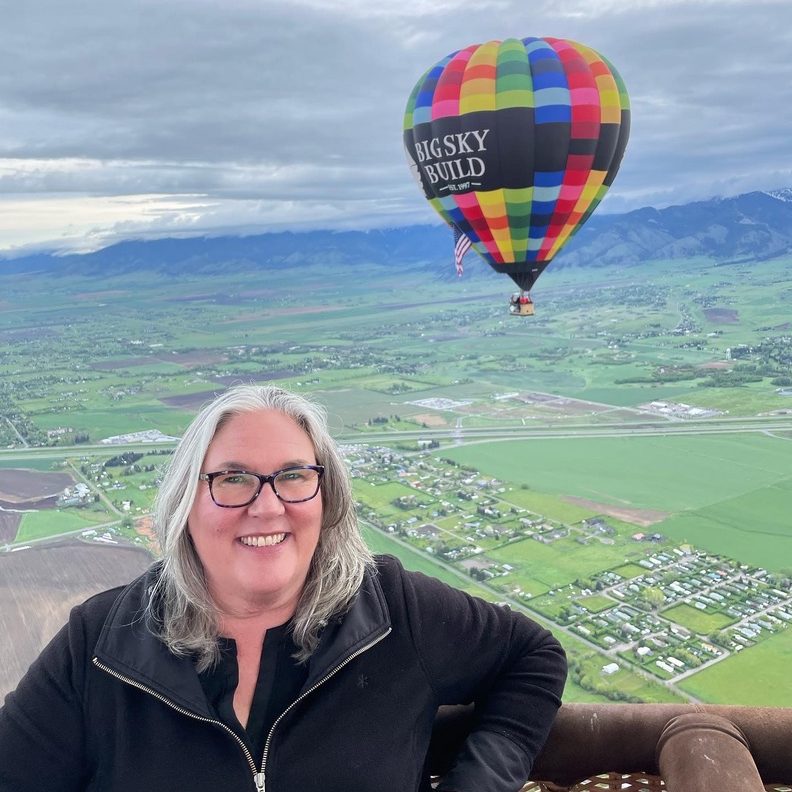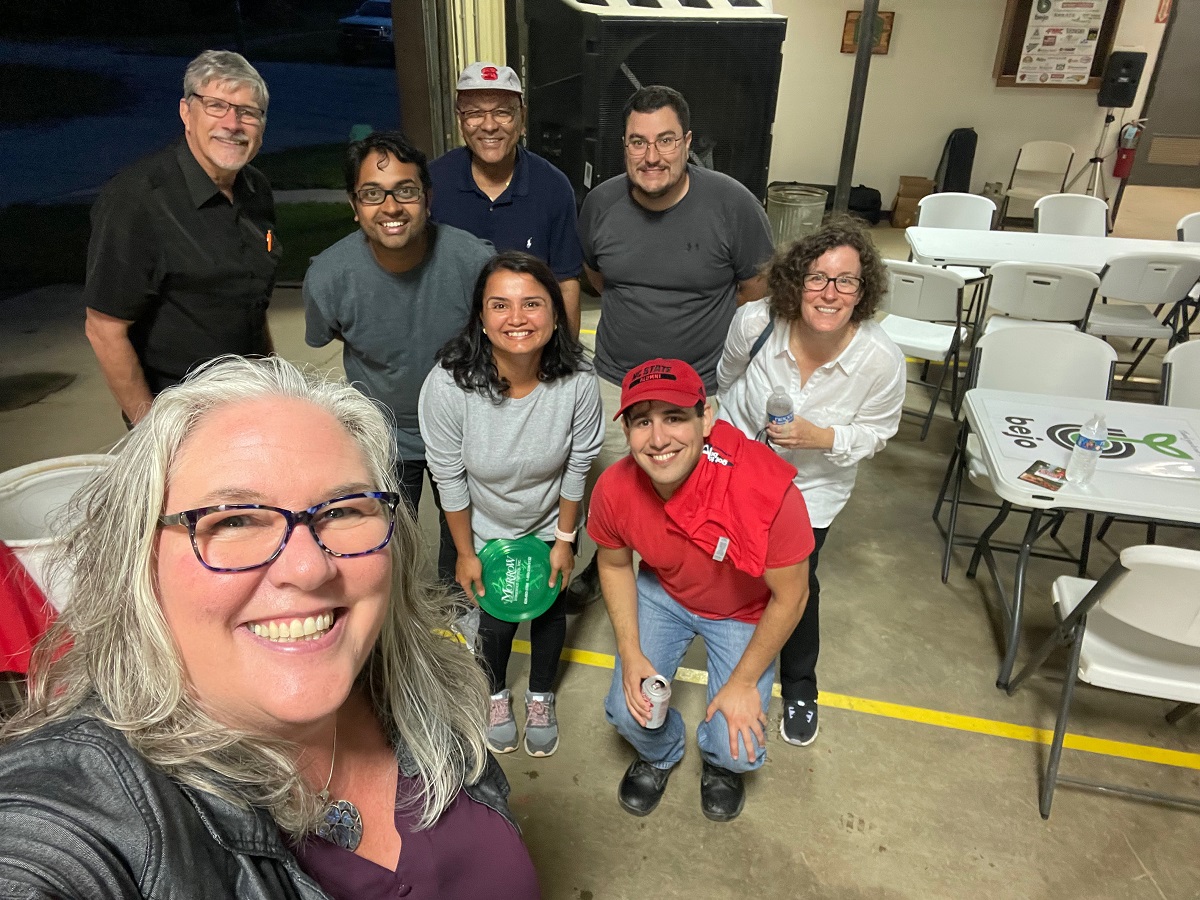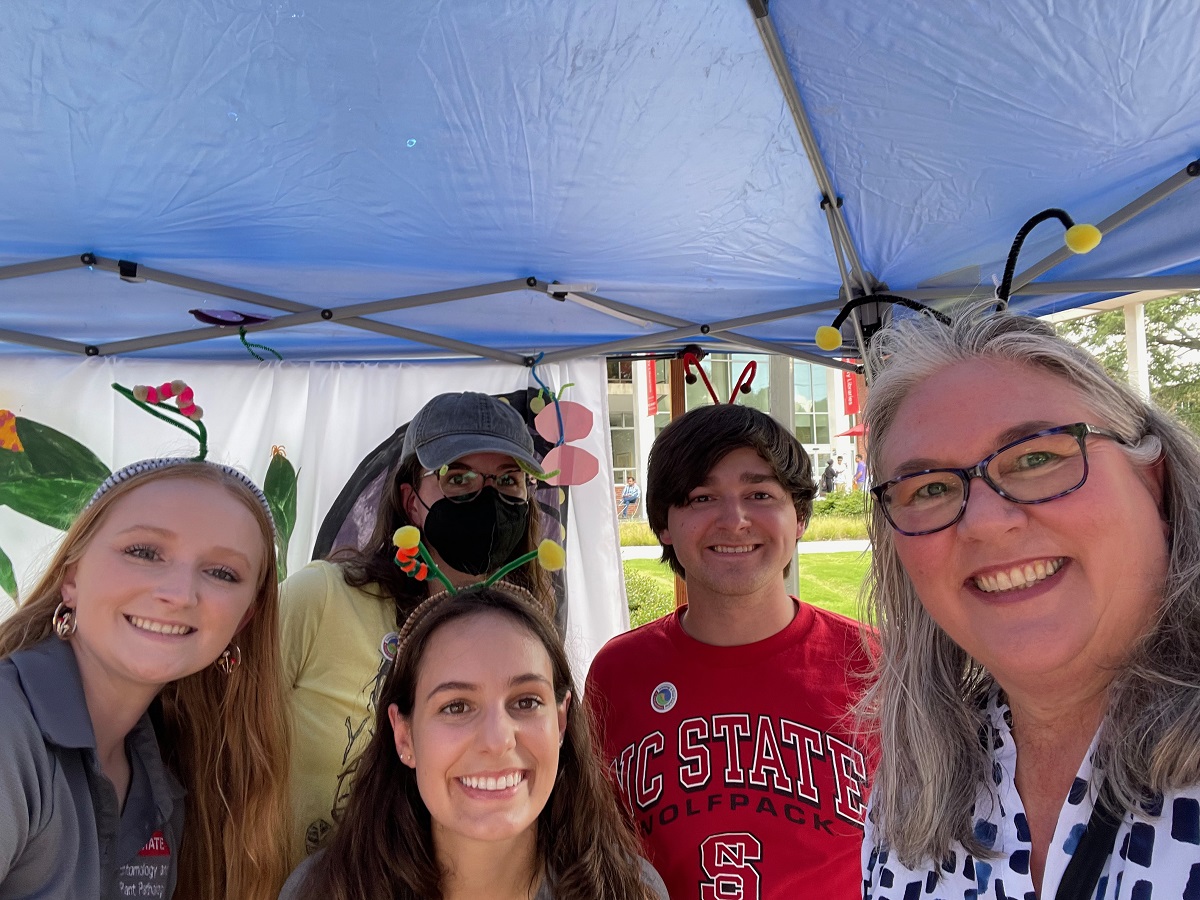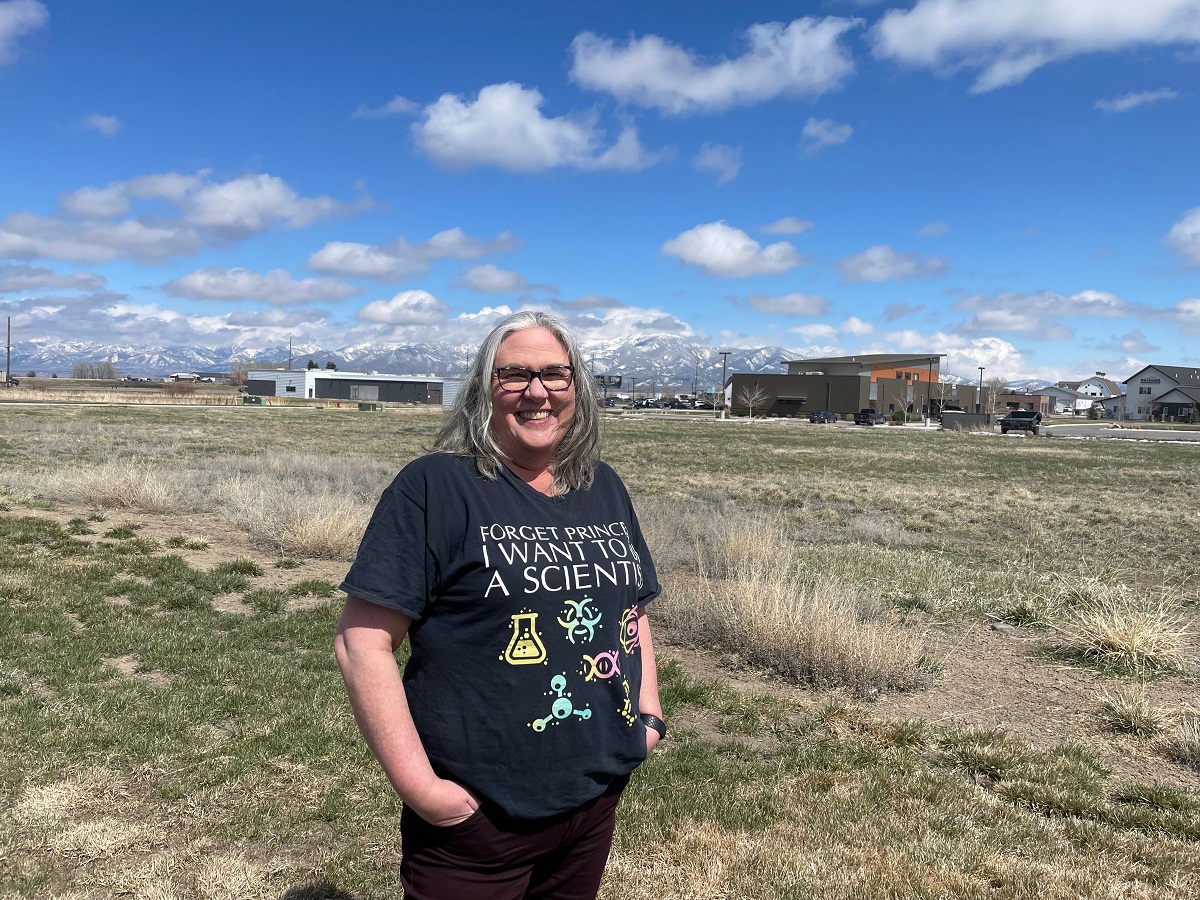
Embracing the journey of exploring
“What do you want to be when you grow up?” Seven-year-old Carolyn Anne Young would say, “I want to be a flight attendant because they are all young and beautiful and get to travel the world.”; ten-year-old Carolyn would say, “I want to be a vet because I love animals.”; but neither of them would say, “I want to be a scientist,” because, to young Carolyn, a scientist was a person in a lab coat, pocket protector and geeky glasses, and she had no clue what they did.
“Well, I couldn’t have been more wrong. A career in science is exciting and you get to work with dynamic people. I love what I do. I’m excited to see results and figure out what they mean, even if they don’t always fit my hypothesis,” Dr Carolyn Young says.
How it all began
Te Kunenga ki Pūrehuroa Massey University alumna Dr Young was a Professor at the Noble Research Institute in Ardmore, Oklahoma, for 15 years and is now a Department Head of Entomology and Plant Pathology at North Carolina State University. She is internationally recognised for her research on seed-transmitted fungal endophytes and their impact on forage grazing systems. She worked closely with grass breeders to develop tall fescue cultivars that eliminated concerns with fescue toxicosis in grazing livestock. She worked on the devastating pecan scab pathogen and developed tools to better understand the pathogen biology to improve pecan disease management. And she has even utilized drones in her research to understand the movement of a root rot pathogen in a field of alfalfa/lucerne. She discovered genes for the synthesis of bioprotective alkaloids, identified and described new endophyte species, and developed genomic and culture resources. She even integrated her research into educational activities centred on the inconspicuous symbiosis of grass endophytes and provided knowledge and tools to stakeholders.
Born in Wellington, Carolyn’s father was a butcher who owned butcher shops around the city, and her mother was a stay-at-home mum. Carolyn is the first of her family to graduate from university. “I didn’t have a family with an academic background, and my parents would never pressure me about what I wanted to do. Instead, they were quite happy just to let me figure it out.”
When Carolyn was fourteen, her father decided to make a change and bought a country pub in Shannon, 28 kilometres southwest of Palmerston North. That’s how it all began.
Two years later, Carolyn learned about the New Zealand Certificate in Science (NZCS) - a course that provided a pathway to work in a lab. “It was a science apprenticeship; I enjoyed chemistry and biology, and science was my favourite subject; it appealed to me to be able to learn how to become a technician while working in a lab,” Carolyn says.
Not only a first generation university graduate, Carolyn also had a non-traditional path to complete her studies. She worked as a technical assistant setting up 300-level biochemistry laboratory classes at Massey University and completed most of her NZCS courses as night classes. Before completing her NZCS she started working as a research assistant in Professor Barry Scott’s lab in what was then the Microbiology and Genetics Department. “The NZCS taught me how to make up solutions, how to make the techniques work and how to become a great technician. And I really enjoyed the research,” she says.


Onwards and upwards
She continued to work in Professor Scott’s lab for 17 years, while she completed her degrees - a bachelor’s, master’s, and doctoral, all from Massey University. “I can still remember how supportive Barry was as a supervisor. I loved working for him!”
Attending international scientific meetings during her PhD encouraged Carolyn to start a new adventure – gain more experience overseas. In 2004, together with her husband David, they sold their house, gave away nearly everything, packed their lives into eight suitcases, and moved their family to the United States for a postdoctoral fellowship with Dr Sophien Kamoun at Ohio State University.
“We took a big chance. Our monthly income dropped to a quarter of what it once was, but David and our sons, Patrick and Oliver, then 12 and two, believed in me. Fourteen months later, an opportunity knocked on the door,” she says.
In 2006, Carolyn started her research lab at the Noble Research Institute and rose steadily through the academic ranks – first Assistant Professor, then Associate Professor, and then promoted to Full Professor in 2019. She served as the principal investigator for the Noble Research Institute’s Mycology program for fifteen years. As a molecular mycologist, she evaluated and improved the scientific understanding of fungi that impact agronomic and productivity traits of forage crops.
Last August, Carolyn accepted the position of Head of Entomology and Plant Pathology at North Carolina State University – a leading Land-Grant institution with the mission of teaching, research and service (outreach and extension). Speaking of her new job, Carolyn is full of ambitions. “This is a top department full of incredible faculty who strive to make a difference for North Carolina and beyond. My job is to remove as many obstacles as I can so they can continue to be the best. We are a big department spread across multiple buildings on campus, so we need to improve our sense of community to ensure the department can still grow and succeed long into the future.”
Open the door for others
Throughout her impressive career, Carolyn was the founding Editor-in-Chief of the Phytobiomes Journal, established in 2017 by the American Phytopathological Society. She is also passionate about mentoring and enjoys providing professional socialisation and personal support to enhance early career development. She values the relationships with her mentors who have enriched her career, and as a result, she strives to pay forward similar experiences to others.
To Carolyn, Massey has helped build the foundation of a successful career. “I attribute a lot of my personal growth to my time at Massey and working with Barry; my goal was to help people in the lab do their job better and succeed.” Carolyn believes that how you’re treated is how you learn to treat other people, “I feel like I had a lot of respect for what I was doing, and it gave me a lot of opportunities. It’s from those opportunities that I grew as a scientist. And I want other people to have similar opportunities to see how they can grow.”
“I love Massey, and Palmerston North could be one of my favourite places to live.”
Carolyn has many cherished Massey memories – she met her husband David on campus, and they were married at Wharerata, which was a significant part of their life. “I would love to return to New Zealand every year to visit Palmerston North. It will always feel like home.”
